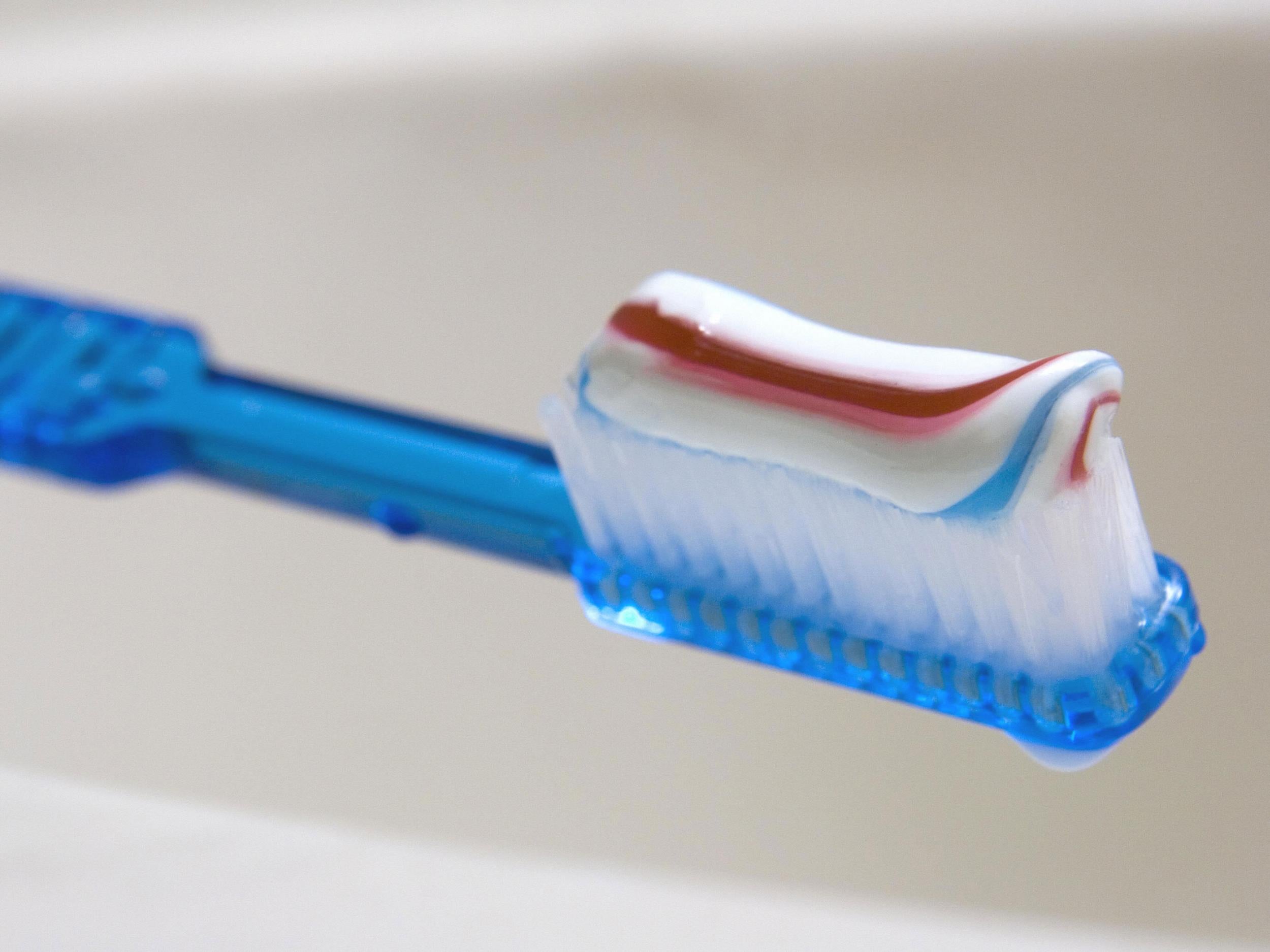The Independent's journalism is supported by our readers. When you purchase through links on our site, we may earn commission.
Additive found in toothpaste and food products could cause cancer, say scientists
New study finds titanium dioxide leads to precancerous growths in 40 per cent of rats

An ingredient widely used in toothpaste and a range of food products can cause cancer, scientists have found.
The additive, titanium dioxide, caused precancerous growths in 40 per cent of rats that were given the chemical in their drinking water, according to researchers in France and Luxembourg. It also sped up the development of these growths, which are not malignant but can develop into more dangerous cancers.
The product, which is referred to as E171, is widely used in sweets, chocolate, biscuits and chewing gum, as well as toothpaste and sunscreen, to whiten products or make them look more opaque.
Previous research by the International Agency for Research on Cancer found inhaling titanium dioxide, which is also used in products such as paint, could cause cancer – but this is the first time such link has been shown when the product is consumed orally.
In the latest study, scientists found E171 was absorbed by the intestine and passed into the blood, where it spread to other parts of the body. Precancerous growths were found in the intestine or colon of 40 per cent of the rats exposed to the chemical, but in none of those that were given uncontaminated water. E171 was also found to weaken the rats’ immune system.
It is unclear whether the product might have a similar effect in people, and the scientists said their findings “cannot be extrapolated to humans”.
Despite this, the French government ordered an immediate inquiry into the safety of E171. This will take place as part of a wider investigation into the impact of nano-materials on health, and results will be published by the end of March.
In a joint statement, the French ministries for the economy, health and agriculture said: “A study carried out by the National Institute for Agricultural Research (INRA) and published today shows that oral exposure to titanium dioxide (E171), the additive used particularly in the agri-food industry, is likely to result in effects on health. However, at this stage, the results of the study do not make it possible to extrapolate to humans.
“In light of the findings of this study, the Ministries of Economy, Health and Agriculture decided to jointly refer the National Agency for Food, Environmental and Occupational Health Safety (Anses) to determine whether the food additive E171 presents a potential hazard to consumers."
13 ways to help prevent cancer
Show all 13The Independent has contacted the UK Department of Health for comment.
The study into the impact of titanium dioxide in rats was led by France’s National Institute for Agricultural Research (INRA) and published in the Scientific Reports journal.
The team gave rats E171 through their drinking water for 100 days. The quantities used were proportionally similar to those humans are exposed to through foods and cosmetic products
Publishing their findings, the researchers said: “These results indicate that E171 both initiates and promotes the early stages of colorectal carcinogenesis in animals.
“These studies show for the first time that the additive E171 is a source of titanium dioxide nanoparticles in the intestine and the entire body, with consequences for both immune function and the development of preneoplastic lesions in the colon.
“Oral exposure to E171 is a concern, especially in children who tend to eat a lot of sweets."
Subscribe to Independent Premium to bookmark this article
Want to bookmark your favourite articles and stories to read or reference later? Start your Independent Premium subscription today.

Join our commenting forum
Join thought-provoking conversations, follow other Independent readers and see their replies